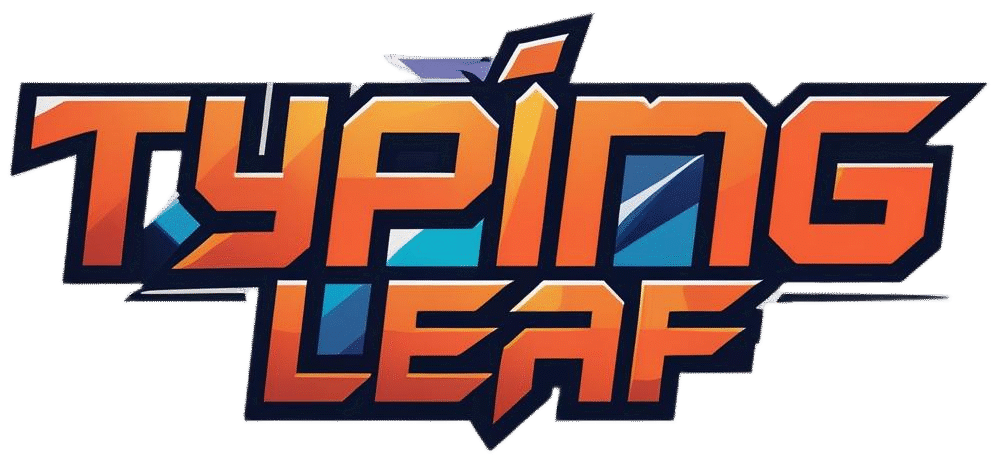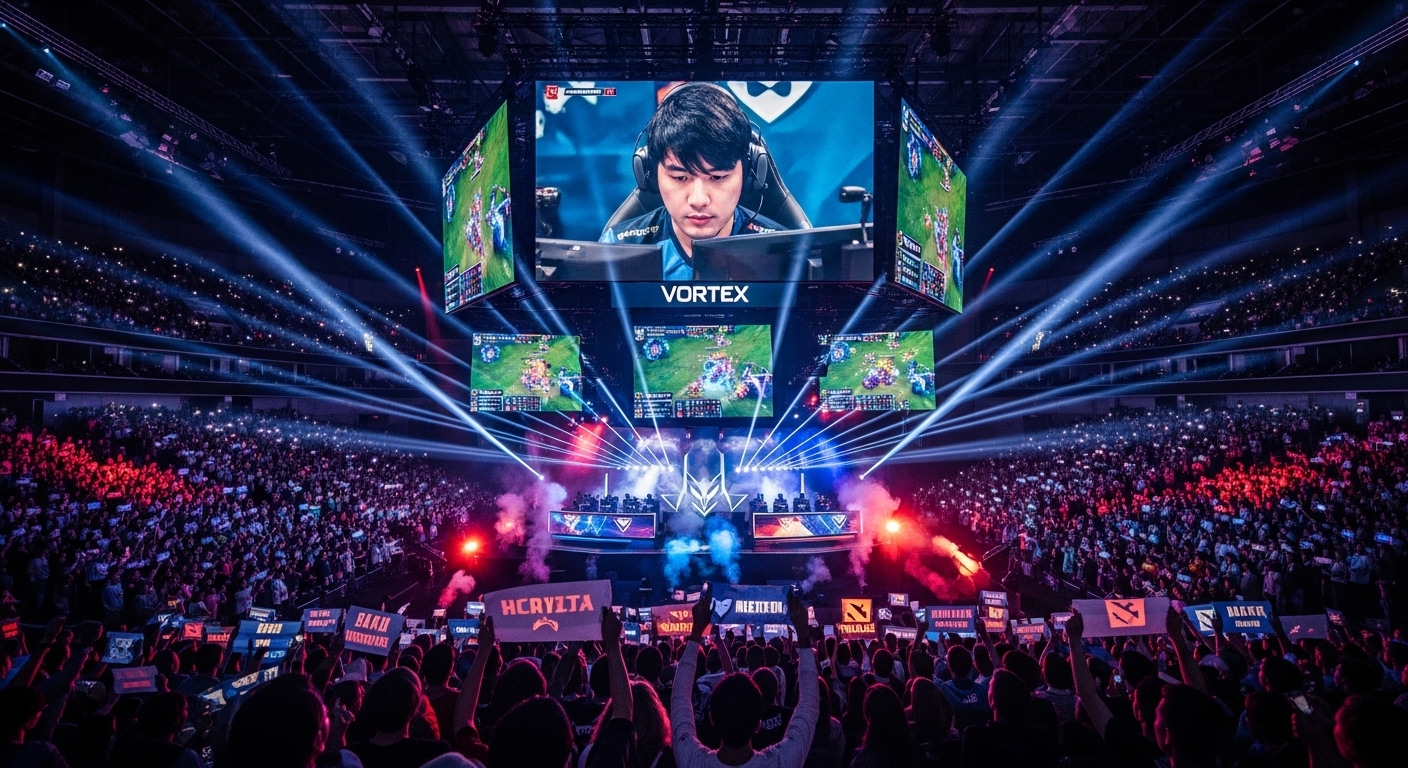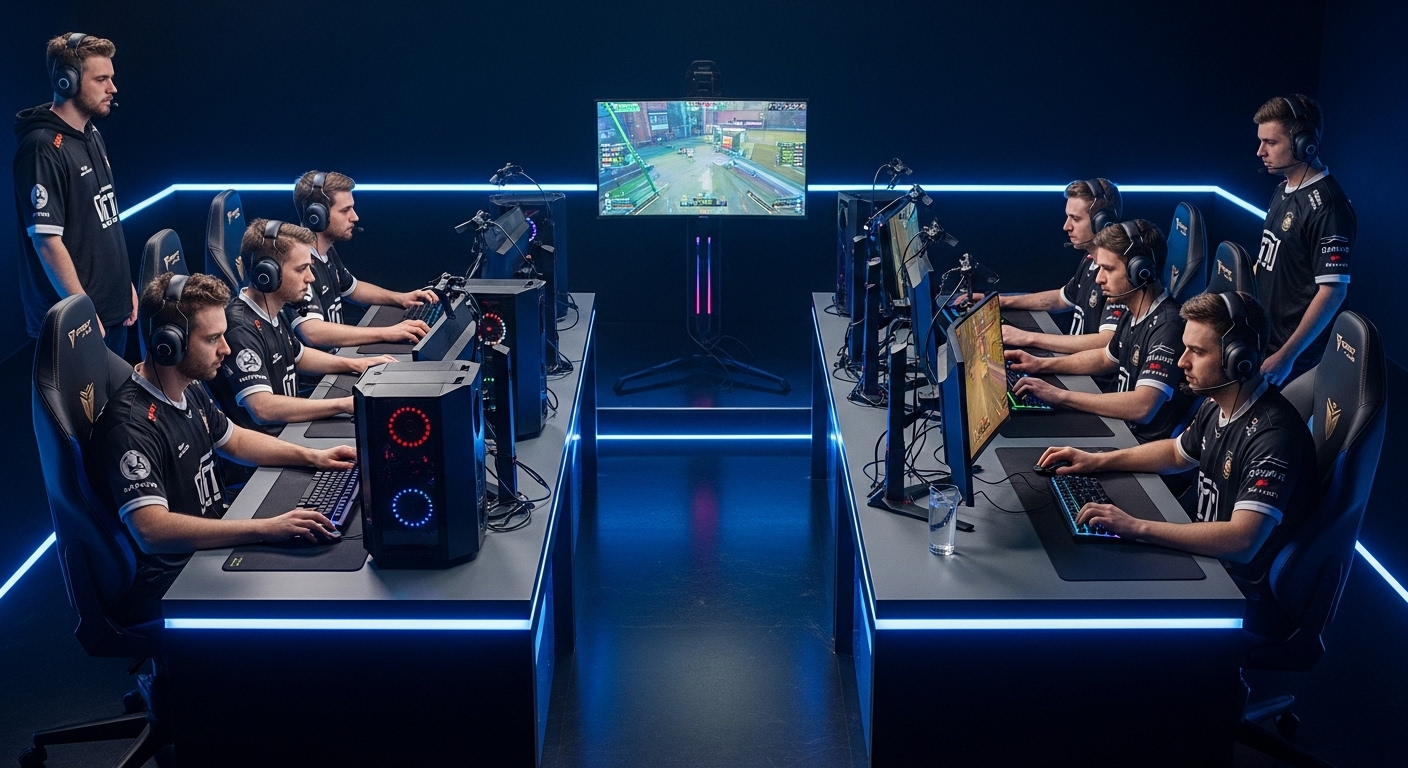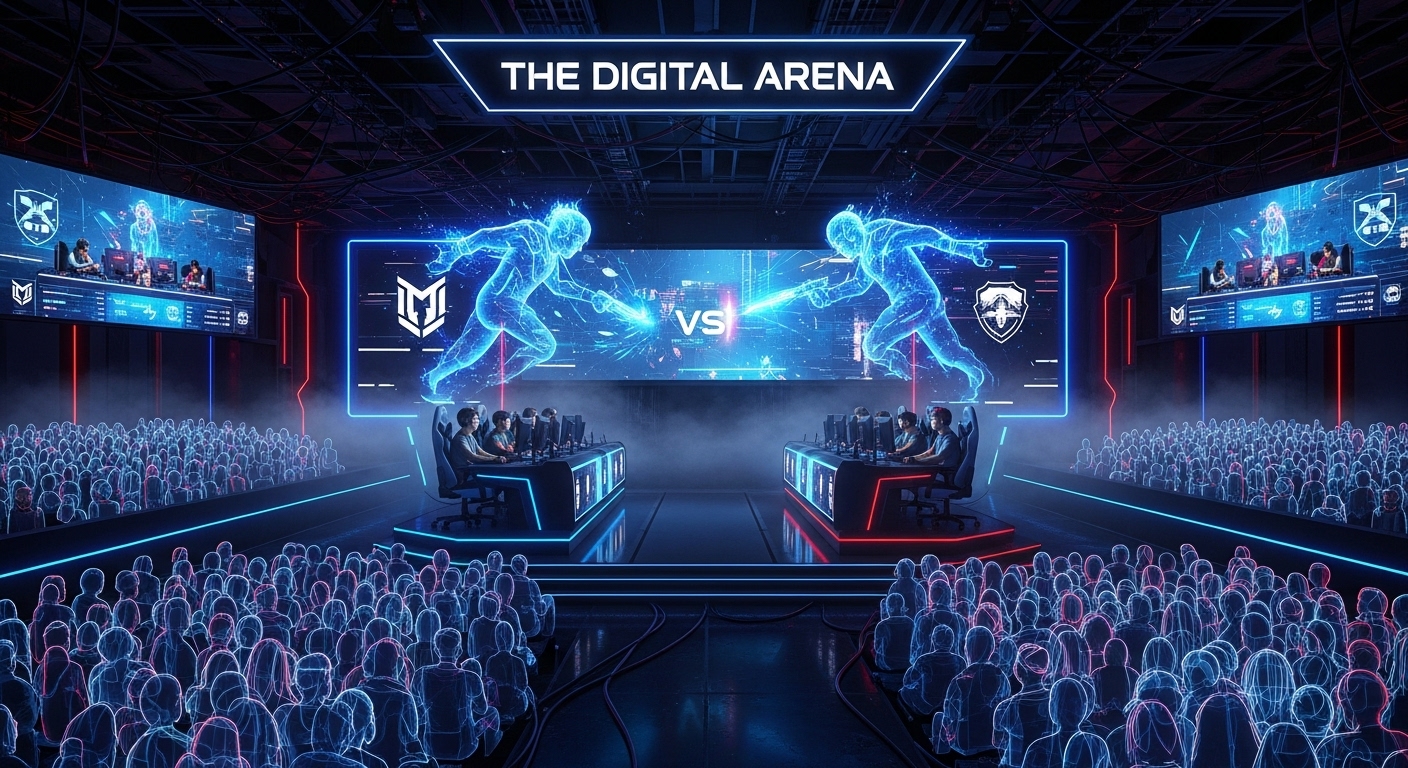Introduction to Esports
Esports, short for electronic sports, has emerged as one of the most influential cultural and technological phenomena of the 21st century. What once began as casual gaming sessions among friends has evolved into a billion-dollar global industry that attracts millions of viewers, professional players, sponsors, and media outlets. The concept of Esports revolves around competitive video gaming where players, either solo or in teams, compete in organized tournaments and leagues for fame, glory, and substantial financial rewards. The rise of Esports has reshaped the entertainment landscape, merging technology, competition, and community in unprecedented ways.
Today, Esports is no longer just a hobby; it is a legitimate profession and a growing ecosystem that rivals traditional sports in terms of popularity and viewership. From global tournaments filling massive arenas to live streaming platforms that broadcast matches to millions, Esports stands as a testament to how digital entertainment can captivate the modern world.
The Origins and Evolution of Esports
The history of Esports can be traced back to the early 1970s when the first known gaming competition took place at Stanford University in 1972 for the game “Spacewar.” Although small in scale, this event laid the foundation for competitive gaming. As arcade and console gaming grew in the 1980s, friendly competitions in titles like “Pac-Man” and “Donkey Kong” became popular.
The true evolution of Esports began in the 1990s with the rise of personal computers and the internet. Games such as “Quake,” “StarCraft,” and “Counter-Strike” introduced online multiplayer modes that allowed players to compete globally. The ability to connect players across continents marked a turning point, transforming gaming from a solitary activity into a social and competitive pursuit.
By the early 2000s, professional tournaments began to emerge, with games like “Warcraft III” and “Dota” setting the stage for organized leagues. South Korea became a pioneer in Esports infrastructure, with televised tournaments and dedicated Esports stadiums. The creation of broadband internet and streaming platforms further accelerated its growth, allowing fans to watch live matches from anywhere in the world.
The Modern Esports Industry
Today, Esports is an expansive industry encompassing professional teams, event organizers, sponsors, broadcasters, and even educational institutions offering degrees in gaming. Popular Esports titles span multiple genres—ranging from first-person shooters like “Call of Duty” and “Valorant” to strategy games like “League of Legends” and “Dota 2.” Each of these games has built its own community, complete with global tournaments, professional leagues, and fan bases comparable to those of major sports franchises.
Esports tournaments are now held in large stadiums that host thousands of fans, while millions more tune in online to watch live streams. Prize pools often reach into the millions, as seen in tournaments such as “The International” for Dota 2 or the “Fortnite World Cup.” These events have turned gamers into global celebrities, with players earning endorsement deals, sponsorships, and streaming contracts that rival professional athletes.
In addition to players, the industry also thrives on the contributions of coaches, analysts, content creators, and event organizers. The ecosystem supports numerous job opportunities, demonstrating how gaming has matured into a multifaceted profession.
The Role of Streaming and Digital Platforms
Streaming platforms have played a crucial role in the success of Esports. Platforms such as Twitch and YouTube Gaming allow fans to watch their favorite players compete in real time, interact through chat, and even learn from professionals through tutorials and live commentary. This level of accessibility has created an intimate bond between gamers and their audiences, blurring the line between entertainment and participation.
The rise of influencers and streamers has also expanded Esports’ reach beyond hardcore gamers. Casual viewers, who might not play the games themselves, are drawn to the personalities and stories behind the competitions. This transformation has turned Esports into a form of mainstream entertainment, akin to reality TV or sports broadcasting.
Popular Esports Games and Their Impact
Each major Esports title has its own identity, rules, and culture. “League of Legends,” developed by Riot Games, stands as one of the most iconic competitive games, with its annual World Championship drawing millions of viewers worldwide. “Dota 2,” another multiplayer online battle arena (MOBA) game, is known for having the largest prize pools in Esports history.
First-person shooter games like “Counter-Strike: Global Offensive” and “Valorant” emphasize precision, teamwork, and strategy, often leading to intense, fast-paced matches that captivate spectators. Meanwhile, “Overwatch” and “Call of Duty” have built strong professional leagues that mirror traditional sports structures, with franchises representing major cities.
Battle royale games such as “Fortnite” and “PUBG” brought a fresh wave of excitement to the scene by combining survival mechanics with large-scale competition. Even sports simulation titles like “FIFA” and “NBA 2K” have gained traction, offering fans of real-world sports a digital alternative.
The Rise of Professional Players
Professional Esports players are athletes in their own right. They undergo rigorous training, strategize with their teams, and analyze opponents to refine their gameplay. While some may question the physicality of Esports compared to traditional sports, the mental agility, reflexes, and coordination required at the professional level are extraordinary.
Players often begin their careers at a young age, honing their skills through ranked matches and community tournaments before being scouted by professional organizations. Top players can earn substantial incomes from salaries, sponsorships, streaming revenue, and tournament winnings. However, their careers are often short-lived due to the intense mental strain and rapid evolution of games.
Esports organizations invest heavily in player development, offering structured environments, nutrition plans, and psychological support to ensure peak performance. The recognition of Esports athletes as professionals has also led to conversations about fair wages, contracts, and representation, mirroring developments seen in traditional sports.
Global Growth and Cultural Influence
Esports has become a truly global phenomenon, transcending geographical and cultural boundaries. Countries across Asia, North America, and Europe host some of the largest Esports communities. South Korea remains a central hub, but China, the United States, and various European nations have developed strong infrastructures to support the industry.
In many parts of the world, Esports is now recognized as an official sport. Some countries even issue athlete visas to professional gamers. The inclusion of Esports in multi-sport events such as the Asian Games demonstrates its growing legitimacy and acceptance.
Culturally, Esports has influenced fashion, music, and entertainment. Collaborations between gaming brands and popular musicians or fashion designers have created a new hybrid culture where gaming is seen as stylish and modern. From merchandise to themed music videos, Esports has expanded far beyond the screen, embedding itself into global pop culture.
The Economics of Esports
The financial structure of Esports is complex and multifaceted. Revenue streams include sponsorships, media rights, advertising, merchandise, and ticket sales. Major companies see Esports as an opportunity to connect with younger, tech-savvy audiences. As a result, global brands from energy drinks to car manufacturers have become sponsors of teams and tournaments.
Franchise leagues have also brought stability and structure to the Esports scene. Similar to traditional sports leagues, these systems allow investors to own teams representing specific cities or regions. This approach has attracted significant funding and made the industry more sustainable in the long run.
Additionally, Esports betting, digital merchandise, and subscription-based streaming have created new economic opportunities. Universities and educational programs focusing on Esports management and development are preparing future professionals to join this fast-growing field.
Esports in Education and Career Development
Educational institutions have recognized the potential of Esports not only as entertainment but as a platform for learning and career growth. Universities now offer Esports scholarships, academic programs, and degrees in game design, management, and broadcasting. These initiatives provide students with both theoretical and practical knowledge of the industry.
Esports also teaches valuable life skills such as teamwork, communication, critical thinking, and leadership. Students participating in Esports clubs or collegiate tournaments gain experience that can translate into careers in marketing, production, event planning, and technology.
The inclusion of Esports in education reflects a broader societal shift in recognizing gaming as a productive and legitimate pursuit.
Challenges Facing the Esports Industry
Despite its success, Esports faces several challenges. Issues such as player burnout, cheating, toxicity in online communities, and unstable career paths are common. Maintaining integrity and fair play is an ongoing battle, as organizers implement stricter anti-cheat systems and ethical standards.
Monetization is another challenge, as not all tournaments and organizations achieve profitability. The industry’s heavy reliance on sponsorships can make it vulnerable to economic fluctuations. Furthermore, gender inequality and lack of representation remain major concerns, with female gamers and marginalized groups still facing barriers to entry.
Mental health is also a critical topic. The pressure to perform, long hours of practice, and public scrutiny can lead to stress and anxiety among players. Addressing these issues is essential to ensure the long-term sustainability of Esports as a profession.
The Future of Esports
The future of Esports looks incredibly promising. With continuous advancements in technology, such as virtual reality, augmented reality, and cloud gaming, the competitive gaming experience will become even more immersive. Artificial intelligence and data analytics will further refine strategies and enhance viewer engagement.
Esports is also expected to play a significant role in the metaverse, where players and fans interact in virtual environments. This convergence of gaming, entertainment, and social networking will open up new possibilities for participation and monetization.
Furthermore, as 5G networks expand globally, access to high-speed internet will enable more players from developing regions to join the competitive scene, diversifying the global player base. The integration of Esports into mainstream culture and education suggests that its influence will only continue to grow.
Conclusion
Esports represents far more than competitive gaming; it embodies a modern digital revolution that unites technology, community, and culture. From its humble beginnings to its current global dominance, Esports has proven that gaming is not merely a pastime but a form of entertainment, art, and profession.
The industry’s rapid evolution reflects the changing nature of human interaction in the digital age. It demonstrates how passion and innovation can turn virtual worlds into real opportunities. As the boundaries between sports, media, and technology continue to blur, Esports stands at the forefront of this transformation—shaping the future of competition, creativity, and global connection.
The rise of Esports is not just a trend but a movement that defines how society embraces the digital era. With its ever-growing audience, expanding professional ecosystem, and continuous innovation, Esports will remain one of the most dynamic and influential forces in modern culture for generations to come.



